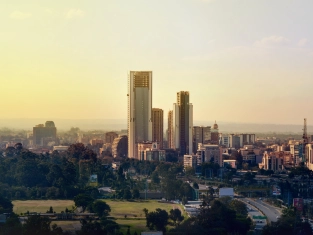by PushtoLearn
What Language Is Spoken In Brazil?
Table of Contents
The Official Language of Brazil: Portuguese
|
Language |
Status |
Where It’s Used |
|
Portuguese |
Official language |
Nationwide (government, media, business, education) |
✅ Brazil is the only Portuguese-speaking country in South America.
Why Does Brazil Speak Portuguese Instead of Spanish? 🤔
-
Portugal colonized Brazil in 1500, while Spain colonized most of the rest of South America.
-
The Treaty of Tordesillas (1494) divided the New World between Spain and Portugal, giving Brazil to Portugal.
-
Portuguese became the dominant language, replacing indigenous and African languages over time.
✅ Today, Brazil has more Portuguese speakers than Portugal itself!
How Many People Speak Portuguese in Brazil?
-
Total Portuguese speakers: ~215 million (native & second-language speakers).
-
Brazil has the largest Portuguese-speaking population in the world, making up over 85% of all Portuguese speakers globally.
🌎 Other Portuguese-speaking countries: Portugal, Angola, Mozambique, Cape Verde, Guinea-Bissau, East Timor, and more.
✅ Brazilian Portuguese is slightly different from European Portuguese, with unique pronunciation, vocabulary, and grammar.

Are There Other Languages Spoken in Brazil? 🌍
Yes! Besides Portuguese, Brazil is home to many other languages, including indigenous, immigrant, and regional languages.
1. Indigenous Languages 🏕️
Before Portuguese colonization, Brazil had over 1,000 indigenous languages. Today, about 170 indigenous languages remain, spoken by ~300,000 people.
|
Language |
Indigenous Group |
Where Spoken |
|
Tupi-Guarani |
Guarani, Tupiniquim |
Amazon, coastal regions |
|
Yanomami |
Yanomami people |
Northern Brazil |
|
Ticuna |
Ticuna people |
Western Amazon |
|
Kaingang |
Kaingang people |
Southern Brazil |
✅ Efforts are being made to preserve these endangered languages.
2. Immigrant Languages 🌍
Due to immigration, Brazil also has millions of speakers of European, Asian, and Middle Eastern languages.
|
Language |
Spoken By |
Where Spoken |
|
German |
~1.5 million |
Southern Brazil (Santa Catarina, Rio Grande do Sul) |
|
Italian |
~500,000 |
São Paulo, Southern Brazil |
|
Spanish |
~460,000 |
Border regions |
|
Japanese |
~400,000 |
São Paulo (largest Japanese community outside Japan) |
|
Arabic |
~1 million |
Lebanese & Syrian communities |
✅ São Paulo has the world’s largest Japanese community outside Japan! 🇯🇵
3. Regional Dialects & Variations 🗣️
Brazilian Portuguese has many regional accents and dialects due to the country’s huge size.
|
Region |
Dialect Characteristics |
Example Cities |
|
Southeast |
Most "standard" Portuguese, influenced by European Portuguese |
São Paulo, Rio de Janeiro |
|
Northeast |
Strong African and indigenous influence, unique pronunciation |
Salvador, Recife |
|
South |
Influenced by German and Italian, softer pronunciation |
Porto Alegre, Curitiba |
|
Amazon |
Many indigenous loanwords, nasal pronunciation |
Manaus, Belém |
✅ No matter the accent, all Brazilians understand each other!
Difference Between Brazilian Portuguese and European Portuguese
While both Brazilian Portuguese (Português Brasileiro) and European Portuguese (Português Europeu) are mutually intelligible, they have key differences in pronunciation, vocabulary, and grammar.
1. Pronunciation 🗣️
|
Feature |
Brazilian Portuguese |
European Portuguese |
|
Syllables |
Open, clear pronunciation |
Muffled, softer pronunciation |
|
S sounds |
"S" sounds like /s/ or /ʃ/ (sh) |
"S" at the end of words sounds like /ʃ/ (sh) |
|
T & D sounds |
"Ti" and "Di" sound like "chee" and "jee" (e.g., diretivo → "jee-reh-chee-vo") |
Pronounced more like "tee" and "dee" |
|
R sounds |
Strong, guttural "R" (like in French) or rolled |
Softer "R" (sometimes silent) |
✅ Example:
-
"Brasil" is pronounced "Bra-ZIL" in Brazil but "Bra-SEEL" in Portugal.
2. Vocabulary Differences 📖
Just like American and British English, Brazilian and European Portuguese have different words for common objects.
|
English |
Brazilian Portuguese 🇧🇷 |
European Portuguese |
|
Bus |
Ônibus |
Autocarro |
|
Train |
Trem |
Comboio |
|
Cell phone |
Celular |
Telemóvel |
|
Suitcase |
Mala |
Bagagem |
|
Pineapple |
Abacaxi |
Ananás |
|
Ice cream |
Sorvete |
Gelado |
|
Toilet |
Banheiro |
Casa de banho |
✅ If you travel between Brazil and Portugal, expect some vocabulary differences!
3. Grammar & Sentence Structure ✍️
|
Grammar Rule |
Brazilian Portuguese |
European Portuguese |
|
Personal Pronouns |
Uses "você" (you, informal) more often |
Uses "tu" (you, informal) more often |
|
Gerund (ing) |
Uses -ndo endings (e.g., falando – "speaking") |
Uses "a + verb" (e.g., a falar – "speaking") |
|
Object Pronouns |
Comes before the verb (e.g., me disse – "told me") |
Comes after the verb (e.g., disse-me – "told me") |
|
Past Tense |
Uses simple past more frequently |
Uses compound past more frequently |
✅ Example:
-
🇧🇷 "Você está falando português?" (Are you speaking Portuguese?)
-
🇵🇹 "Tu estás a falar português?" (Are you speaking Portuguese?)
Can You Get By with Spanish in Brazil?
❌ No, not really. While Spanish and Portuguese are similar, they are not mutually intelligible.
However:
-
Some Brazilians understand basic Spanish, especially near the borders.
-
Portuñol (a mix of Portuguese & Spanish) is sometimes spoken in tourist areas.
-
Learning basic Portuguese will help you communicate much better!
✅ If you speak Spanish, you can learn Portuguese relatively easily!
FAQs
What is the official language of Brazil?
Portuguese is the only official language.
Does Brazil speak Spanish?
No, but some people understand Spanish, especially in border areas.
How different is Brazilian Portuguese from European Portuguese?
-
Brazilian Portuguese has different pronunciation, vocabulary, and some grammar changes.
-
Example:
-
European Portuguese: "Autocarro" (bus)
-
Brazilian Portuguese: "Ônibus" (bus)
What indigenous languages are spoken in Brazil?
Tupi-Guarani, Yanomami, Ticuna, and Kaingang are some of the most spoken indigenous languages.
Can I get by with English in Brazil?
❌ English is not widely spoken. Learning basic Portuguese will be very helpful!

